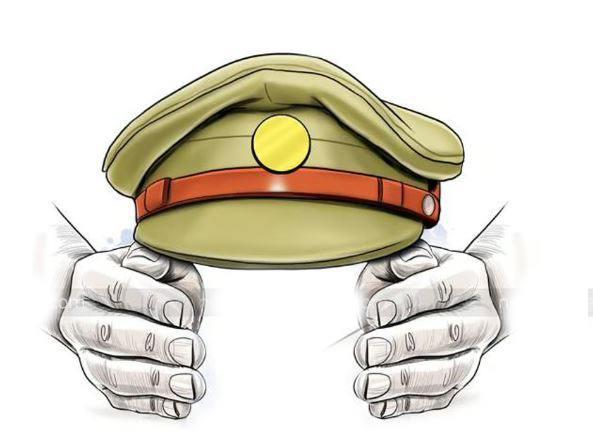By Dr Olav Albuquerque
THE Goa Police may have just got better! Twenty-one young police sub-inspectors (PSIs) with good communication skills and dedicated to investigating crimes, are being promoted between 2020 and 2023 to police inspectors (PIs). They will head some of the 28 police stations in Goa. Before they were promoted, some on the verge of retirement were promoted to police inspectors.
Goa Chief Minister Dr Pramod Sawant’s decision to pool the vacancies that arose within the Goa Police and the Armed Police benefitted these young men. Two chief secretaries, Parimal Rai and Puneet Kumar Goel, also took quick decisions to merge the vacancies and ensure young blood rejuvenated the flagging image of the Goa Police.
OLD AND NEW
BEFORE these young men were promoted, their seniors were experts in refusing to register FIRs which resulted in showing a crime rate lower than it was. This is simply because when an FIR is registered, the PI has to solve the crime or be pulled up by his superiors who may give him an adverse annual confidential report. The police can refuse to register a crime if it is trifling, if it is a civil dispute, or if it is very vague or time-barred. So, lazy and incompetent pot-bellied PIs, refused to register FIRs against drunkards who harassed their wives, merely gave them a dressing down and sent them home. But now, things may have changed!
Police Inspector (PI) Arun Gauns Dessai is just 34 years old, has a BTech degree in computer science from the Padre Conceicao College of Engineering near Margao, and heads the Maina-Curtorim police station. He was working as an engineer, when he saw an advertisement for police officers, but was refused two months leave to prepare for the entrance exam.
He resigned, took the help of his paternal uncle to prepare for the physical training exam, and cracked the written exam and physical fitness test. Today he heads a large team of PSIs and constables. He inspired his sister Ashwini Dessai to quit her job and sit for a competitive exam. She is now a deputy collector.
Another success story is that of PI Rahul Naik who heads the Valpoi police station and ranked 7th at the SSC exam in 2005 and 57th in the GCE exam. He too is in his 30s and has a BTech degree in civil engineering while his batchmate, PI Raghoba Kamath also has a BE degree in electronics and computer science, is also in his 30s and heads the sensitive Old Goa police station.

ENGINEERS IN POLICE FORCE
BUT what prompted these engineers to switch from engineering to the police force? Their answers are varied. Raghoba Kamath had family commitments while Arun Dessai and Rahul Naik decided to take the plunge anyway. PI Manoj Malik has an MCom degree and was a physical training instructor before joining the police force. He has just turned 40 years old and was promoted to PI in 2020, making him the senior among the young men who have been promoted.
Their take-home salary comes to roughly Rs55,000 per month which rises with seniority, whereas they may have earned much more in engineering. PSI Mahesh Velip was promoted under the scheduled tribe cadre to PI and is posted in the police headquarters at Panjim whereas PI Alvito Rodrigues was promoted from the general category.
For those who came in late, the Goa Police as an independent entity was born in April 1946 with the establishment of the Policia do Estado da India abbreviated as PEI. These men in khaki were a part of the Portuguese military and indistinguishable from the latter because they all wore baggy khaki half trousers with tenny shoes.
THESE PEI carried old World War II vintage rifles which they had to clean. The PEI was divided into five territorial divisions for efficient performance with each division headed by a commissioner who reported to the commander of the PEI. The strength of the PEI continued to grow with each passing year to thwart the growing demands for the ouster of the Portuguese from Goa.
PAKLO YOUTH!
IT WAS these Portuguese youths (called “paklos” because of their fair skin) who tried to defy the invading Indian Army on December 19, 1961 but were unable to do so. They blew up the Banastarim bridge to prevent the Indian Army from entering Goa. Tragically, the hordes of documents such as judgments and land records were set on fire by some of the enthusiastic nationalists who were ignorant of the fact that they were destroying painstaking research which was done by the retreating Portuguese.
Some of these paklos married local Goan Catholic women and sired children who bore their fair skin and coloured eyes and were in turn called “paklos” or jeered at as “paklo boors.” They were very good footballers and excelled in sports. I distinctly remember a boy named Ivo Miranda who was my classmate at Don Bosco High School in Panjim whose father was in the Goa Police. He was called a “paklo” because of his fair skin. He epitomized the typical paklo Goans of the era.
But there are no “paklos” in the Goa Police today, although there were a few Catholics who made it to the rank of superintendent of police, like Nelson Albuquerque who sits in the headquarters of the Goa Police at Panjim.
Another is Bossuet Silva who is known to be straightforward forward, while Bosco George is another. The IPS officers above them belong to the AGMUT cadre (Assam, Goa, Manipal and Union Territories) and spend a few years in Goa before returning to Delhi or elsewhere.
These officers will not rise above the rank of superintendent of police because the posts of deputy inspector general of police, inspector general of police and finally the top post of director general of police, has always been occupied by the IPS cadre who have cleared an all-India competitive examination held by the Union Public Service Commission before rising to where they are today.

